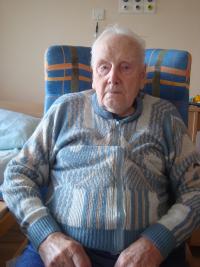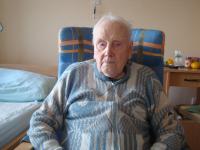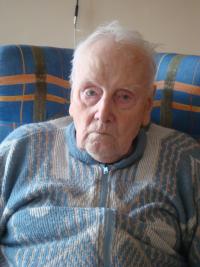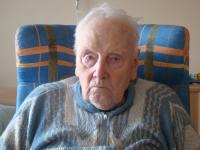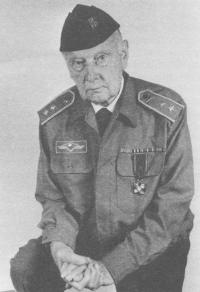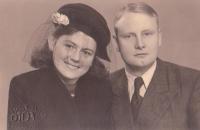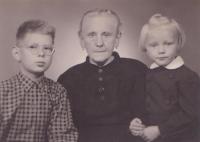All in the same array, fight for our homeland, sent the red Bolshevik hordes away

Download image
Colonel in retirement Josef Václav Toman (Tománek) was born November 19, 1912 in the village of Kupichov in Volhynia, which was a part of the tsarist Russia at that time. He studied a music academy in Lublin while the region of western Volhynia was under the Polish rule. All his life he has been committed to the struggle against the Soviet Union and communism. He published his first anti-Soviet article in 1932 in the Selka magazine in Brno. After the Volhynian territory was taken by the Soviet Union, Josef Václav Toman was arrested and imprisoned in eastern Poland for six months. Shortly after his release, before the German attack on the Soviet Union, he was sent for conscripted labour, where he was digging trenches. Violent groups of Bandera´s supporters began forming during the German occupation of Volhynia, and Czechs from Kupichov had to organize their own militia in cooperation together with the Polish Armija Krajowa (National army), which Josef Václav Toman joined. He took part in several attacks against the Ukrainian Insurgent Army. In 1944 he joined the 1st Czechoslovak Army Corps, which was being formed, and he was sent to an officers´ school. After his return he served as a first officer in the firing position with the 5th Artillery “Jaslo” regiment, where he had some fifteen men under his command. He took part in the battles for Jaslo, Kroslo, and in the Carpathian-Dukla operation. After the war he assisted with the re-emigration of Volhynian Czechs to Czechoslovakia. Unlike most of Volhynian Czechs, he was not demobilized, but instead he was dismissed from the army for his anti-communist attitude. He married and settled in Aš. As early as 1948 he started an anti-communist resistance organization called the Army of National Defence (Armáda národní obrany, abbreviated as ANO), but shortly after its establishment he illegally crossed the border to Germany. At first he was interned in Hof, and later sent to the Valka camp near Nurnberg. He continued voicing his anti-communist views in Radio Free Europe, as well as in the USA, where he worked as a gardener and in an aircraft factory. While in the USA, he founded a so-called provisional preparatory council of the exile organization, which aimed to give rise to anti-communist resistance in the free world. After 1989 he returned to Czechoslovakia, where he lived in Jesenice near Beroun. Currently he lives in Prague.
